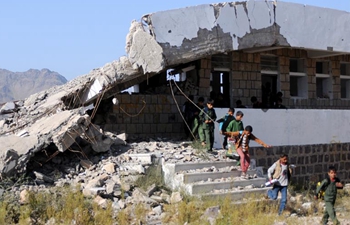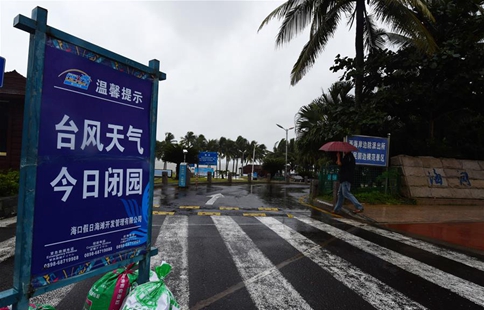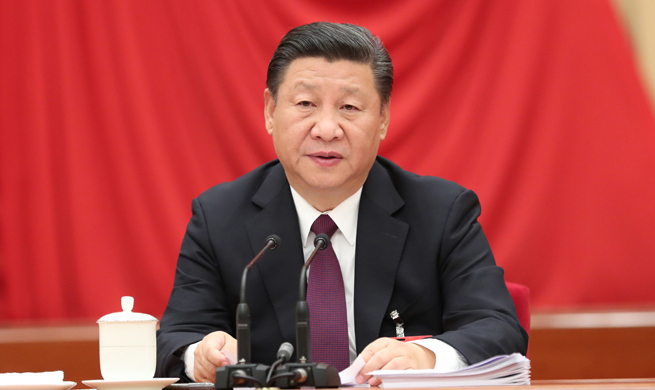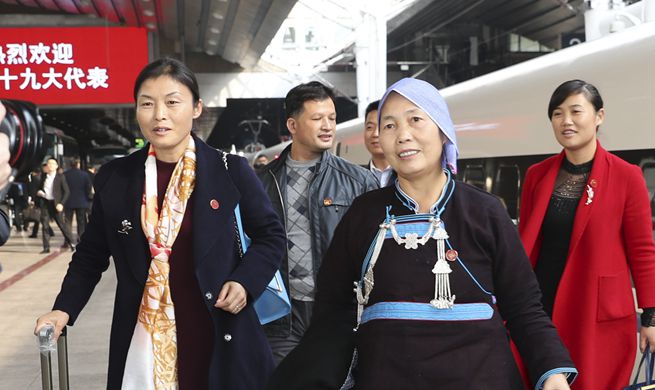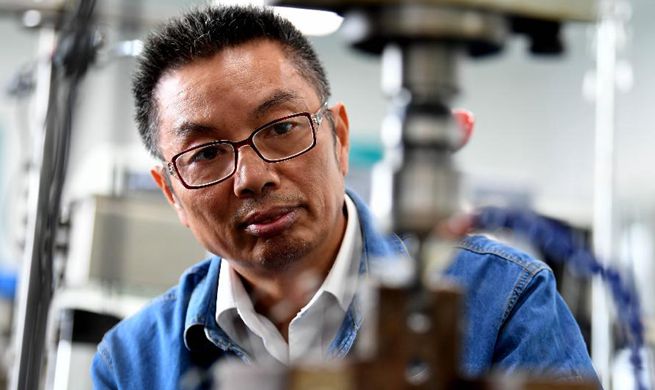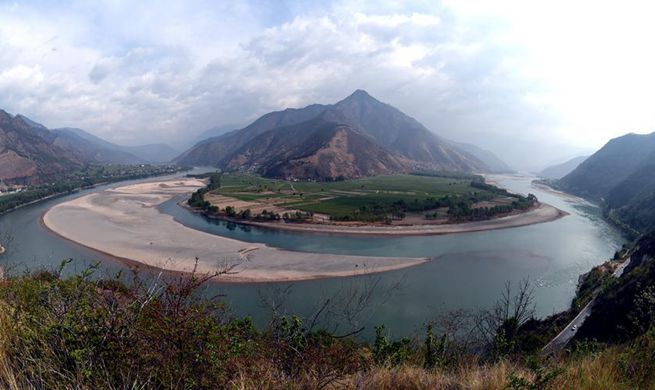ROME, Oct. 16 (Xinhua) -- Italy's cabinet approved the 2018 budget on Monday, with new measures worth about 20 billion euros (23.6 billion U.S. dollars).
The package was now expected to go before the Senate on Oct. 20, and requires approval by both chambers by the end of December. Meanwhile, it will be sent to the European Union (EU) Commission for review.
The budget would "support the growth path, and continue the trend of financial stabilization of the country," according to Prime Minister Paolo Gentiloni.
"A few months ago, there were fears this would be a 'blood and tears' budget," Gentiloni told a press conference after the cabinet meeting." Instead, the package approved is slender, and I think useful to our economy."
A major priority for the government was to avert value-added tax (VAT) hikes and new taxes or levies next year, the prime minister explained. As such, an estimated 15.7 billion euros in the budget will be needed to avoid triggering the so-called safeguard clause in 2018.
Such clause requires the government to increase VAT and other indirect taxes if its spending-review process is deemed inadequate to respect the planned budgetary goals, according to EU rules.
A key measure in the 2018 budget would be a 50 percent cut of labor tax wedge for three years to companies recruiting with open-ended contracts new workers under 35 years of age.
A fiscal break for companies investing in new machinery was also confirmed for 2018, yet reduced from 140 percent to 130 percent.
The budget would provide funds for hiring 1,500 new researchers in Italian universities, and confirmed the renewal of labor contracts for workers in the public sector, which had been frozen for about 10 years.
According to Economy Minister Pier Carlo Padoan, the budget was a limited but effective step allowing "a robust, inclusive growth."
"It is acknowledged Italy has overcome its most serious recession since after World War II," Padoan told reporters. "What we need in this phase is boosting productivity with public investments... and supportive measures for private companies."








